Intercultural Crosstalk
A Conversation with Foreign Restaurant Owners -About Having a Restaurant in Tokyo-
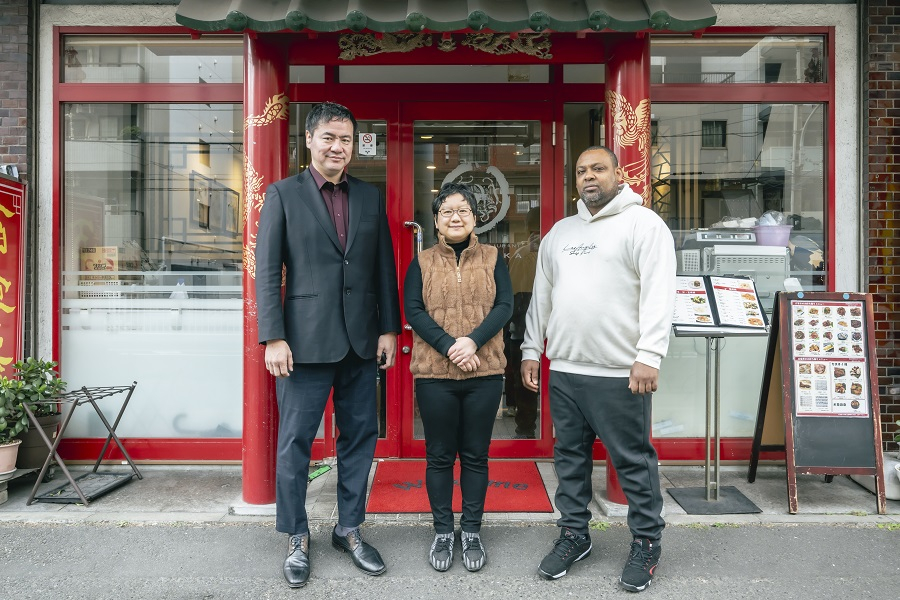
Profiles
Yang (from China)
- Years of residence in Japan
- 23 years
- Native language
- Chinese
- Favorite Japanese words
- "Warau kado niwa fuku kitaru: Good fortune and happiness will come to the home of those who smile"
- Favorite places in Tokyo
- Kinshicho
- Favorite food
- Sushi, tempura
- Hobbies
- Shodō (Japanese calligraphy), Ikebana (Japanese flower arrangements)
- Working in own country
- Company President's secretary, hotel sales manager
Ephrem (from Ethiopia)
- Years of residence in Japan
- 20 years
- Native language
- Amharic
- Favorite Japanese words
- Osaki ni shitsurei shimasu: (pardon me for leaving first. Used when leaving a workplace or other situations while others remain)
- Favorite places in Tokyo
- Yotsugi and Tateishi
- Favorite food
- Sushi, yakiniku (Japanese barbecue)
- Hobbies
- Watching and playing soccer, watching drama series
- Working in own country
- Accountant
Unuruu (from Mongolia)
- Years of residence in Japan
- 25 years
- Native language
- Mongolian
- Favorite Japanese words
- Genten (origin)
- Favorite places in Tokyo
- Ryogoku
- Favorite food
- Ramen
- Hobbies
- Snowboarding
- Working in own country
- None (Student)
Round 1: About Having a Restaurant in Tokyo
We are pleased to present a three-part series of roundtable discussions with foreign residents of culinary establishments.
In Tokyo, you can eat food from all over the world. It is very difficult for Japanese people to own their own restaurant, but it is a different kind of hardship for foreigners living in Japan to open and manage a restaurant.
In this first issue, we will talk about opening a restaurant in Tokyo. They talked about how they came to open a restaurant in Japan, how they prepared for it, and the challenges they faced.
What Brought You to Japan?
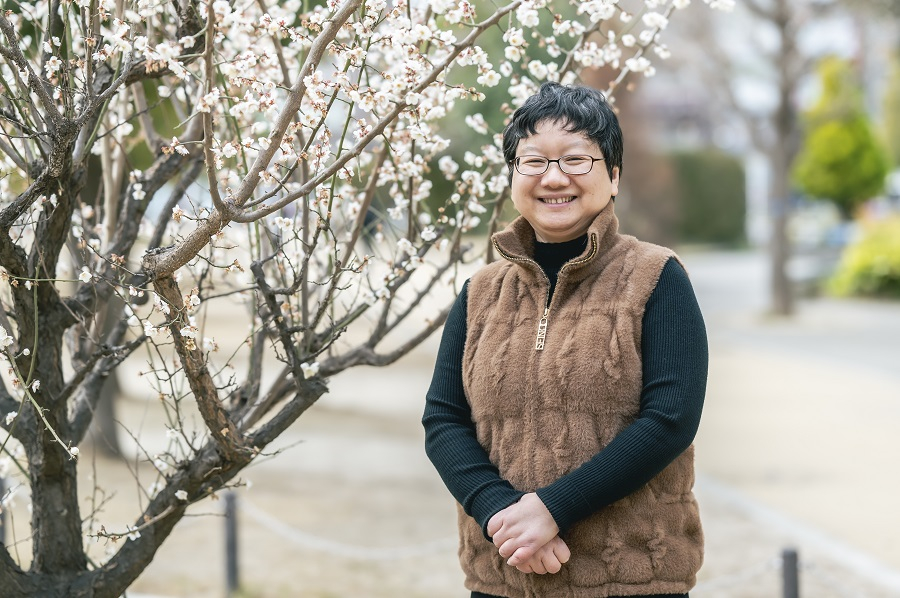
My husband, who is a chef, came to Japan in 1996 on business. I came in the winter of 2001.
I came to Japan in 2004 for work at the Embassy. It is not that I had wanted to come to Japan from the beginning, but rather that it was Japan by chance.
I had seen the Japanese TV drama "Oshin" and programs featuring Japanese technology on Ethiopian TV, so I had an image of Japan. "Oshin" was in Japanese with no subtitles or dubbing, but it was very popular in Ethiopia and some people would even get emotional and cry.
I came to Japan in 1998, when I was 15 years old, after graduating from junior high school to become a rikishi (sumo wrestler).
I was not scouted. My parents wanted me to become a rikishi, and they asked me to write a letter to a Japanese sumo stable master.
I came to Japan alone, but I did not feel lonely because of my interest in new things.
I did not study Japanese at school, but came to Japan after learning simple greetings at a Japanese language club. After arriving in Japan, I taught myself. Japanese co-workers senior to me and others taught me Japanese as well.
I came here without being able to speak any Japanese at all. It was a little difficult at first, but I learned by communicating. Since it is not my country, I think it is okay to make a few mistakes. My Japanese is still poor, but I have never gone to school to learn Japanese.
We lived in a sumo stable, so we lived together as a group. I live speaking in Japanese from morning to night, so it took me about a year to be able to have a normal conversation. At 15 years old, I think anyone can learn a language very quickly.
Tell Us about Your Restaurants
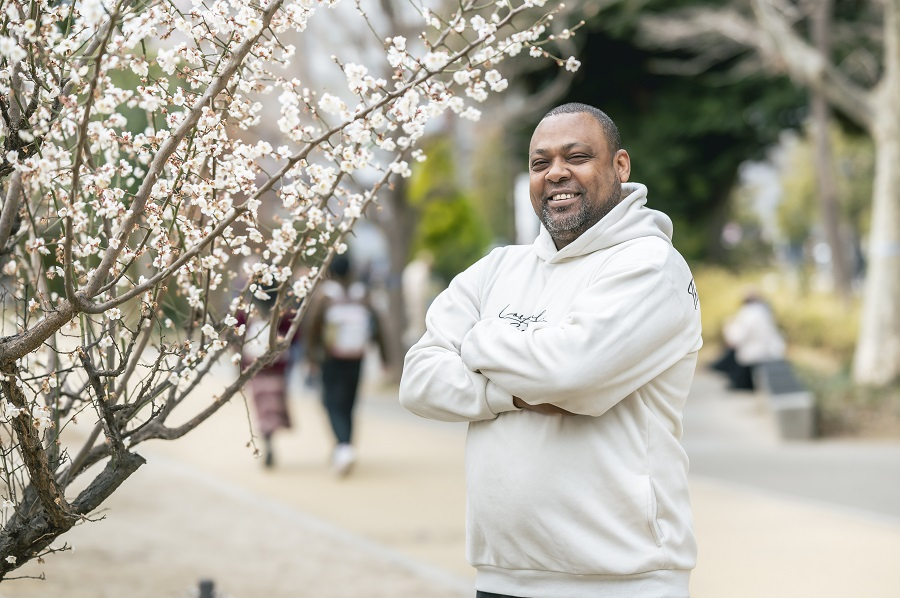
My restaurant is called "Momoenka" and I opened it in 2010. In China, "Momo(百 character for "hundred")" means "everything". "En(宴)" means banquet, and "Ka(香)" means fragrant and delicious food. Also, all the characters have "kuchi (mouth)" in them, so I named it to encourage customers to eat a lot of food.
The name of the restaurant is "Little Ethiopia" and I started it in 2016.
I lived in an area with a large Ethiopian population, so I was actually interviewed by a newspaper about that before I opened the restaurant. The reporter said to me, "This is like a Little Addis Ababa (the capital of Ethiopia)," and that's where I got the idea for the name of the restaurant, Little Ethiopia.
My mother opened the restaurant in 2007, when I was still a sumo wrestler. We named the restaurant "Mongolian Cuisine Ulaanbaatar," after the capital city of Mongolia. At the time, there were restaurants serving Inland Mongolian* cuisine, but very few Mongolian restaurants.
*An autonomous region located in northern China, occupying the southern part of the Mongolian plateau. The capital is Hohhot.
I wanted to create a restaurant where both Chinese and Japanese customers could come and enjoy themselves in an at-home atmosphere.
Same with me. I wanted to introduce Ethiopian culture not only to Ethiopians, but also to Japanese and others from other countries.
We first opened as a restaurant where wrestlers could eat a lot.
Now, people from all walks of life come to our restaurant, so I would be happy if they try our food, get to know the country of Mongolia through it, and think that they would like to visit Mongolia someday because of the cuisine.
What Made You Decide to Open a Restaurant?
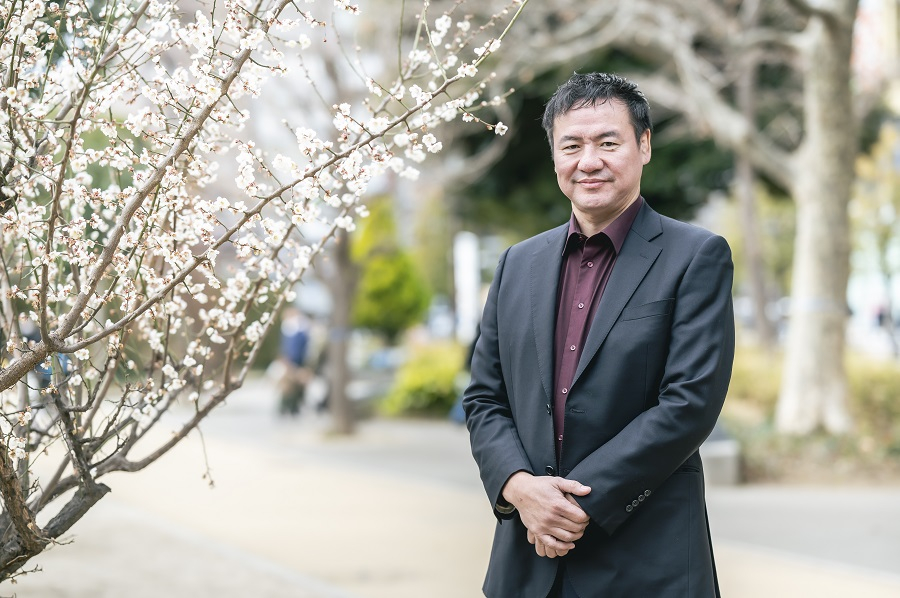
I did not think much about owning my own restaurant at first. When I was working at a relative's restaurant, a customer recommended that I open my own restaurant because of my good cooking skills. My husband said he wanted to do it, so we decided to open a restaurant.
Older Japanese people who saw the first Tokyo Olympics* know a lot about Ethiopia, but younger people don't know much. I wanted to introduce more about Ethiopian culture and other aspects of the country. Since I know good Ethiopian coffee, though I can't do it myself because I have to work, I thought my wife could do it alone if it was a coffee shop.
*Abebe Bikila from Ethiopia won the marathon at the 1964 Tokyo Olympics and won the title for 2 Olympics in a row.
My mother had a restaurant in Mongolia, but while she was in Japan, her contract at her Mongolian restaurant was terminated and she was unable to return to her restaurant.
At the time, the number of Mongolian wrestlers in Ryogoku was increasing, but there was no place to eat Mongolian food, so she was cooking and serving meals from home. I thought that if we opened a restaurant, they would be free to come and eat at our restaurant.
That was a great idea!
Why Did You Choose the Current Location for Your Restaurant?
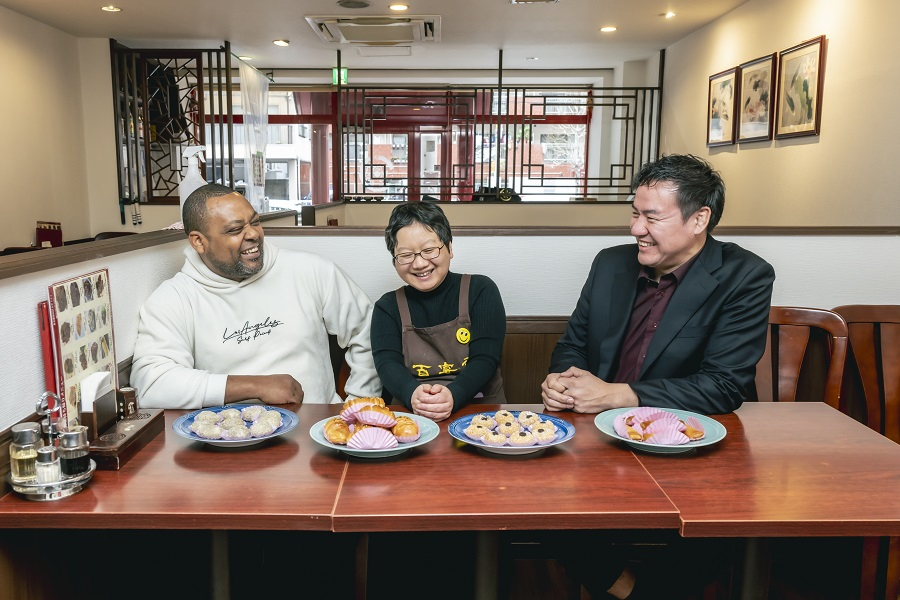
I only thought about opening the restaurant in Ryogoku. I have lived in Ryogoku all this time, so I don't know or have researched other areas.
Me, too. I have lived in Kinshicho ever since I came to Japan and sometimes go to other places for fun, but I still like Kinshicho.
It's a nice place with a lot of people, but there is also a lot of competition. It was very difficult at first, and I had a better life when I was working at another restaurant. Now I have been here for 14 years and the restaurant has settled down.
It's the same for me. I have lived in Yotsugi for more than 15 years, and it is surely not the place to open a restaurant when it comes to business. But since there are many Ethiopians living in the same area, I wanted to inform more Japanese people in the area about Ethiopian culture.
The hardest part was finding a place to rent. Even if you think it is a good location, it does not mean they will rent it to you. The conditions for a good location are also very strict. It took us two to three months to find our current property, because we were turned down by people who said, "Chinese food causes a lot of smoke," or "We are worried about opening a restaurant for the first time".
The person who rented us this place was also very concerned at first and wanted to check our food once. They came to the restaurant where I was working at the time and tried our food. They said, "This will be fine," and we were able to rent the place.
In my case, finding a place to rent was not that difficult.
I knew everyone in the downtown area, so when I said I wanted to open a coffee shop, they introduced me to various properties. Neighbors who came to see the property gave me advice like, "If this is the right place, make it a restaurant," or "It would be nice to have a bar here," and it ended up being a restaurant and bar.
We made a contract directly with the owner of the property. I think it was because we had good communication with the neighbors.
I asked a real estate agent I know to help me find a place. I wanted to look in the Ryogoku area, but it took me a year to find a good one.
3 people who did not come to Japan with the intention of starting a restaurant decided to start one in order to share the culture and flavors of their country. 2 of the restaurants have been going for over 10 years, and one is entering its eighth year this year. It must have been difficult to keep going after the COVID-19 pandemic.
In the next issue, we will talk about "Preparations for Opening a Restaurant”.
── Continued in the Following Issues
Restaurants of the 3 Participants
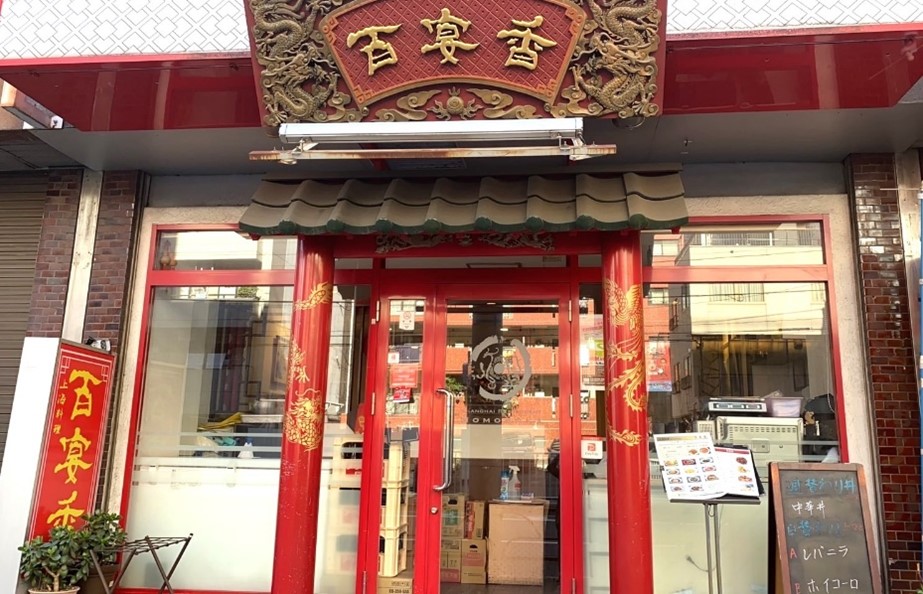
-
Momoenka (Yang's Restaurant)
TEL:03-5619-1082
Opening Hours: 11:30~15:00 / 17:00~23:00
Address: 4 Chome-2-1-108 Taihei, Sumida City, Tokyo
https://maps.app.goo.gl/dnscbSnUCEvx7raL6
- Little Ethiopia Restaurant & Bar (Ephrem's Restaurant)
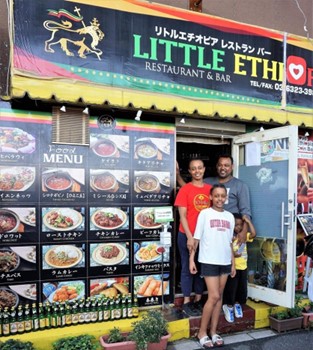
TEL:03-6323-3983
Opening Hours: [Tue~Fri]11:00~14:00 / 17:00~23:00
[Weekends and Holidays]17:00~23:00
Address: 3 Chome-23-6 Higashiyotsugi, Katsushika City, Tokyo
https://maps.app.goo.gl/2zaaB9ATtgK6hbHw6
- Mongolian Cuisine Ulaan Baatar (Unuruu's Restaurant)
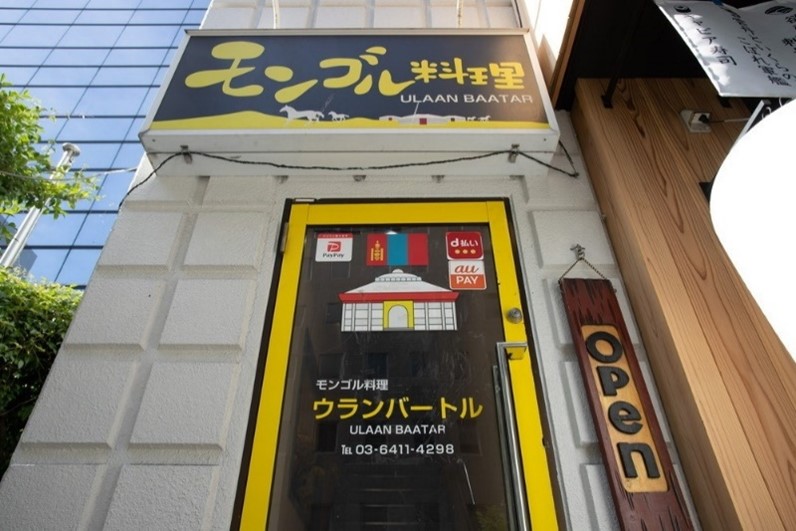
TEL:050-5600-4444
Opening Hours: 11:30〜14:30 (L.O.14:00)
17:30〜22:00(L.O.21:30)
Address: 3 Chome-22-11 2F Ryogoku, Sumida City, Tokyo
